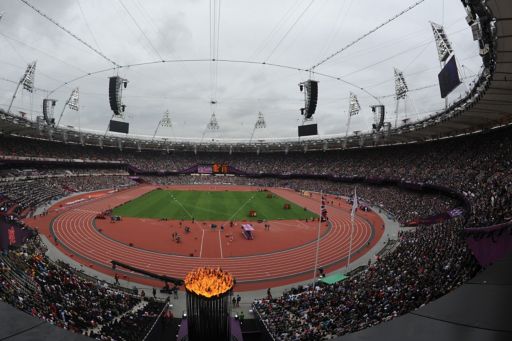Planning for a sustainable future
The legacy of sporting venues
It is undeniable that the complexities surrounding the hosting of sporting events have increased exponentially in recent years but when properly planned and executed, a major sporting event provides a host country or city with the opportunity to promote themselves on a global stage, enhance their economic profile and transform their urban and sporting infrastructure.

All events will leave an impact, but all too often this has been negative with the event becoming a burden on the host due to a lack of foresight and planning. Legacy can take many forms and have numerous types of impact across many areas of society in a host city or country such as social, economic and cultural legacies. Whereas the topic of legacy is wide ranging and complex, the most tangible aspect of legacy are the venues used during the event.
Having studied recent sporting events, both successful and less so, KPMG’s Sports Advisory practice has developed a set of criteria that offers insight into the venue legacy planning associated with major sporting events, including:
- The growing importance of legacy for the International Olympic Committee (IOC): The IOC has increasingly highlighted the importance of legacy since it’s conference on the topic in 2002 – in 2003, the IOC amended its mission statement within the Olympic Charter to state that part of the organization’s role is ‘to promote a positive legacy from the Olympic Games to the host cities and countries’. The most recent action by the IOC to address the strategy behind future Olympic movements was the preparation and release of the Olympic Agenda 2020. This section of the report reviews highlights of the Olympic Agenda 2020 which directly addresses the ‘sustainability and legacy’ of major sporting events.
- Formulating the most appropriate venue legacy plan: Formulating a venue legacy plan for a major sporting event is rarely a completely straightforward task. There are several factors and challenges, many of which are not mutually exclusive, that need to be considered and will likely influence the ultimate outcome. This section of the report reviews the determining factors and challenges that must be considered at the outset of major event planning to properly inform the decision making process.
- Financial and technical considerations regarding temporary venues: If the venue legacy plan indicates there is limited opportunity for a permanent venue to be sustainable after the event has finished, then the option of using a temporary solution, or a hybrid combination of temporary and permanent facilities, should receive serious consideration. This section of the report outlines the importance of using post event market trends and thorough planning briefs to determine the need for a temporary solution or permanent venue.
With contributions from former major event planning committee members and experts on major event planning, we are confident that readers will find this document informative and our insights will prove valuable to all stakeholders involved in the bidding and hosting processes of major sports events.
© 2026 Copyright owned by one or more of the KPMG International entities. KPMG International entities provide no services to clients. All rights reserved.
KPMG refers to the global organization or to one or more of the member firms of KPMG International Limited (“KPMG International”), each of which is a separate legal entity. KPMG International Limited is a private English company limited by guarantee and does not provide services to clients. For more detail about our structure please visit https://kpmg.com/governance.
Member firms of the KPMG network of independent firms are affiliated with KPMG International. KPMG International provides no client services. No member firm has any authority to obligate or bind KPMG International or any other member firm vis-à-vis third parties, nor does KPMG International have any such authority to obligate or bind any member firm.